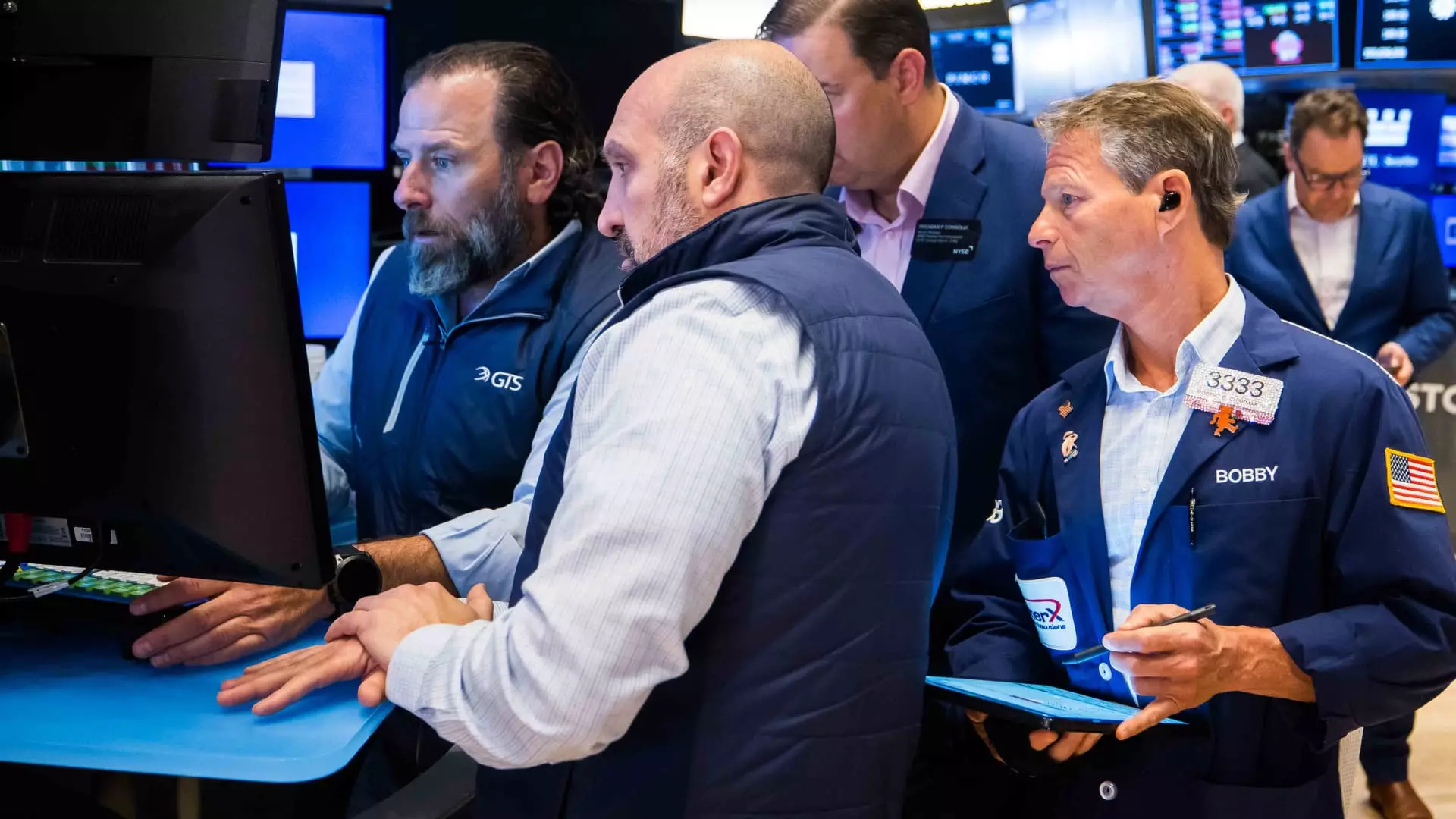The stock market experienced a significant downturn on Wednesday, raising alarm bells among investors and economic analysts. A staggering loss of 745 points in the Dow Jones Industrial Average, translating to a 1.7% decline, has left many questioning the stability of America’s financial landscape. The S&P 500 and Nasdaq Composite also showcased disappointing performances, dropping 1.4% and 1.2% respectively. These figures tell a narrative that goes beyond mere numbers; they reflect an underlying anxiety gripping Wall Street and the broader economy.
Hitting a high note not seen since October 2023, the 30-year Treasury bond yield surged to around 5.08%. Such spikes in bond yields are not mere side notes in economic reports; they are glaring indicators that investors harbor deeper concerns about the sustainability of government policies and the burgeoning national deficit. This vulnerability in the financial ecosystem was exacerbated by news surrounding an impending U.S. budget bill, which is feared to aggravate the already ballooning deficit.
The Impending Fiscal Crisis
As negotiations continue among lawmakers, there is a growing consensus that the forthcoming fiscal measures—especially concerning tax reforms—might lead to unchecked debt accumulation. The compromise surrounding state and local tax deductions scheduled for a vote before the Memorial Day deadline only heightens these concerns. Sam Stovall, Chief Investment Strategist at CFRA Research, captured the essence of investor sentiment perfectly when he remarked, “What will the tax bill look like, and will it undo all of the recent fiscal frugality by simply raising the debt level at a slower rate?” This is not just an abstract worry; it’s the crux of the matter—are we initiating policies that could sabotage any semblance of fiscal discipline we’ve managed to establish?
One cannot ignore the broader implications of these developments. If the tax bill gets the green light, it could signal a worrying precedent where short-term political gains overshadow long-term fiscal sustainability. Such a trajectory does not bode well as it suggests a growing propensity to prioritize immediate interests over prudent economic governance. It is no surprise that experts like Stovall envision a worrying future where yields continue to rise, driven by faltering investor confidence in the U.S. government’s ability to manage its fiscal responsibilities effectively.
Investors React: A Shift in Sentiment
As anxiety escalates, the reactions from the stock market tell a compelling story. The recent performance of major corporations is a testament to this shift. Retail giant Target, for example, witnessed a drop of more than 4% in its shares after it revised its sales outlook downward—a clear consequence of tariff-related uncertainty and public backlash over corporate social responsibility efforts. Such corporate turmoil reflects not just poor earnings but a more comprehensive market sentiment tainted by fears of inflation and rising costs of capital.
Even prominent technology stocks like Apple and Amazon did not remain unscathed, as rising interest rates chipped away at their market value. The interplay between rising rates and market performance raises a critical question: Have we, as investors and a nation, bitten off more than we can chew? The rapid recovery that marked the stocks’ trajectories in recent months—S&P 500 and Nasdaq boasting increases over 14% and 19% respectively—may have created an unrealistic sense of security. The abrupt turn of events might be seen as a necessary backlash to the unmitigated rise in market valuations that often ignores real economic conditions.
The intersection of rising Treasury yields, potential tax changes, and shifting investor sentiment paints a picture of fragility in the stock market. The optimism observed over the last month may mask deeper challenges that lie ahead. As we tread through these uncertain waters, only time will reveal whether the measures taken by lawmakers will fortify the nation’s fiscal foundation or simply amplify existing vulnerabilities. For now, it seems we stand at a precarious crossroads, where every decision taken could lead to either recovery or deeper entrenchment in fiscal irresponsibility.

